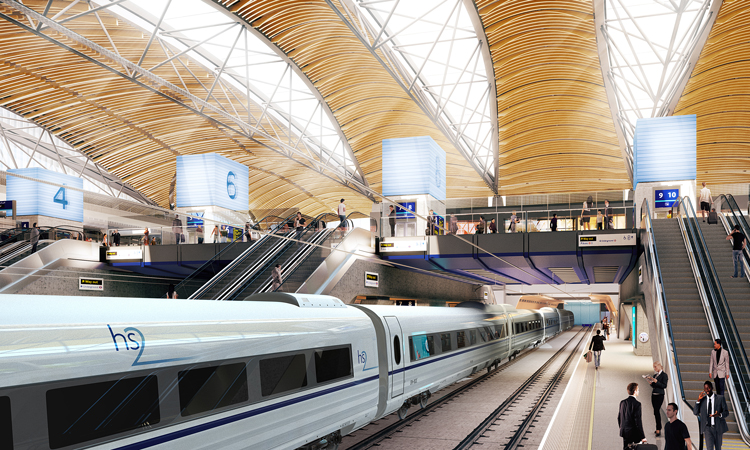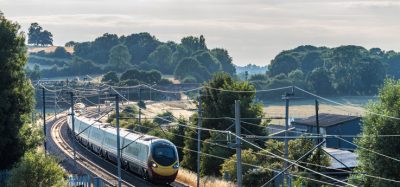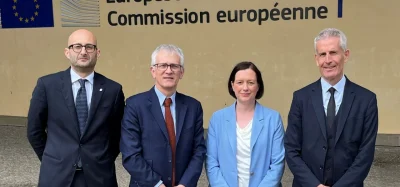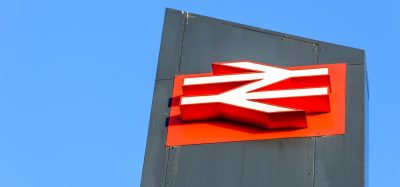HS2 10 years on: is it any more popular?
Posted: 19 November 2018 | Natalie Wilson (Rail Industry Writer) | 10 comments
As the client behind the £55.7 billion line quickly approaches its 10th birthday, there are some major pressure points that they have had to face on the journey to construction. As Rail Industry Writer, Natalie Wilson explores, with public demonstrations, ballooning costs and procurement scandals, the High Speed Two (HS2) line has faced its fair share of challenges over the course of a decade, yet still, it soldiers on amongst the controversy.


Copyright: HS2 Ltd Grimshaw
Since the establishment of HS2 Ltd back in January 2009, the case to have a high-speed railway running through the centre of Britain was officially made in a government white paper in 2010. At the time, the predicted cost was reported to be £30 billion. Whilst the final route was still undergoing negotiations and had not been settled on, the initial proposals looked to feature all of the main elements of the Y-shaped line which was finally confirmed in November 2016.
Although the route has remained mostly the same, the estimated cost of the project hasn’t followed the same path. The costs have gradually increased, reaching £55.7 billion in 2015 – almost double the original estimate.
The HS2 scheme has had its fair share of mismanagement, which did little to improve the public image. However, despite its various battles, the project strives on hitting milestone after milestone towards the full force of its construction work. So, with HS2 Ltd fast approaching its 10 years in operation, what has shaped the project’s progress and is it any more popular now than it was at its inception?
The question of rising HS2 costs
The cost that HS2 is continuing to acquire is one of its most contentious issues. During the 2010 election, the Conservative party had quoted an estimate of around £20 billion for the project, whereas Labour predicted around £30 billion. In January 2012, when the route was mostly in place, the estimate had crept up to £32.2 billion and in June 2013 it had reached £42.6 billion.
These figures were updated as recently as 2015, with the total costs (including all rolling stock) being estimated at around £55.7 billion. Infrastructure consultant Michael Byng, who created the system and method which Network Rail used to total up its project, published a report in April 2018 alongside Lord Berkeley where they set out the total cost that they believed HS2 would amount to.
The duo claimed that the first phase could well hit £48.7 billion rather than the £24 billion quoted by the government. By doing so, they accused those behind HS2 of underestimating the true cost of various elements, varying from railway control through to telecoms systems.
Michael Byng then went on to produce an updated report in July 2018, once again backed by Lord Berkeley, which ramped up the alleged cost for the first phase to £55 billion. They also claimed that the first phase was unlikely to be finished by 2026 and instead gave 2031 as a more realistic completion date. Both the government and HS2 Ltd have rejected these claims.
The project is still in the relatively early stages, so it is impossible to prove either side’s estimates. Currently, there has been £4.1 billion spent on legal and consultancy fees, from dealing with various residential conveyancing solicitors for disputes between land and property ownership to the early works which have so far been carried out.
Business case threats
With France, Spain and China all investing in high-speed railway systems over the last 30 years, no rail work has ever come close to HS2 in terms of cost and size. As a result of these examples, when it comes to justifying the cost of the budget, both the government and HS2 have repeatedly expressed their promise of the long-term benefits to the economy and increasing capacity. However, some experts argue that the long-term financial benefits that HS2 will bring to the economy through businesses and train fares will far outweigh the current predicted costs.
Another debate which has occurred frequently is how well HS2 can be integrated with other existing rail services. With the government expecting the first phase to cost £24 billion, the direct returns are enhanced capacity and reduction of the London to Birmingham journey time by approximately 32 minutes, which, by reducing the strain, will have positive effects on other rail lines and journeys.
Benefits are becoming harder to ignore
Opponents of the rail project argue that it is an unnecessary project which cannot be justified, however, the benefits that the high-speed railway will bring to the country are becoming harder to ignore.
With the current road system in the UK more stretched than ever, there is very limited availability when it comes to increasing road capacity. Many councils are spending money on road improvements, bypasses and building congestion relief roads, which will, naturally, require maintenance over the years. By offering high-speed rail travel, this may well encourage people to travel by train which will help to relieve traffic and congestion in city centres.
The investment will also provide jobs for those involved in the building and running of HS2. The government have predicted that by the time the programme moves into the construction of the line, the number of job roles that HS2 will have supported will reach 15,000. A whole generation consisting of engineers, architects and designers will benefit from the construction of the railway, as well as creating new and unique opportunities for British businesses who can upskill their workforce with employees from further afield.
Another huge debate that frequently takes places is the impact that HS2 may have on the environment. Some campaigners fear that the line runs through natural settings and will impact local animal populations and welfare. There are also concerns as to the number of trees that will need to be removed and how close the line will be to some protected sites.
However, the team behind HS2 have released their ambitions to make HS2 the most sustainable high-speed railway in the world. They hope to deliver a railway which respects the natural environment by adding in a new ‘green corridor’ to the proposed route.
They hope to plant seven million trees during the first stage of the project, thus creating new woodland in place of the ones that protesters are concerned about. They also suggest that carbon emissions will be reduced and pollution prevented.
Latest updates on the HS2 project
Despite the public concern, constant dressing down from the public accounts committee and ever-conflicting claims regarding the eventual costs, HS2 has continued to make progress. Two years ago, the enabling works started on the lines and early works have also taken place at Birmingham Curzon Street station and Euston Station.
The civil work on phase one of the project, which forms the bulk of the next phase of work, has been delayed, although HS2 CEO Mark Thurston has assured that this will not have any impact on the 2026 opening date. In October 2018, the National Audit Office published an investigation into the acquisition of land and property for the first phase and found that the “property acquisition is currently on track”.
It also stated that HS2’s land and property acquisition works were currently on track to potentially be £300 million under the current budget. With the property acquisition still currently at an early stage, there is some uncertainty as to what the final budget will be.
With just over eight years until the planned opening date of the London-Birmingham phase, HS2 is still confident that they will hit their targets. Chris Rayner, HS2 Infrastructure Director said that “nothing that we see as far as we’ve got in developing designs and schedules suggests we are anything other than on schedule”.
Related topics
High Speed Two (HS2), High-Speed Rail, Infrastructure Developments, Regulation & Legislation, Route Development









Opinion polls show that most people are opposed to HS2, but it isn’t something they feel very strongly about. The few people whose lives will be badly affected are balanced by a similar number who’ve jumped on the gravy train and hope to profit massively. It’s always the same with big projects. Where HS2 differs is that its original rationale (ultra fast journeys between a handful of Important Places) has been replaced by blurb about “capacity, connectivity and boosting t’North”; but the public aren’t stupid – they can see that the proposed infrastructure hadn’t changed – and they know they’re being conned. However, they also know that they’re going to be ignored, so they don’t see any point in getting angry about it.
The main reason Government chose to route HS2 through the ancient woodlands and AONBs was to maximise the speed of the trains. They ignored the advice of their own consultants, Arup, whose recommended the route should follow the M40 corridor. This route offered less environmental impact and, crucially, would have given direct connection to Heathrow.
HS2 may have confessed to another £1Bn of cost overruns – who really believes this number? What no one has been candid about is the extra £5Bn+ needed for the Heathrow spur that was a key rationale for HS2 in the 1st place. The spur will have to tunnel through congested west London, just like Crossrail – no further project risks then…
After all this, now we learn that they must slow the trains down. And need to produce even bigger spoil heaps from excavations ‘unsuitable’ for building.
Still, at least the wealthy travellers that can afford HS2 fares can get from London to Birmingham a few minutes quicker… Just a shame that the other 99.9% of rail users will see no benefit. On the contrary, expect to see other rail investment starved for the next decade whilst government haemorrhages public money on HS2.
Save the money for the NHS, affordable housing and better east-west rail connections in the North.
I think most ecologists would find your statement that ‘They hope to plant seven million trees during the first stage of the project, thus creating new woodland in place of the ones that protesters are concerned about.’ trite ta best. New saplings do not replace the ecological richness and diversity of ancient woodland. You can’t recreate that ( at least not for 3-400 years)
It’s interesting that you state “cut through the hyperbole and look at some facts”, because the hyperbole is not from the mouths of those against the scheme. The government’s ability to ignore the objective reports, all of which are negative and instead, spoon-feed us a load of disingenuous propaganda is a complete travesty and makes a joke of any pretence we might have of living in a democracy. The majority of people in the UK do not want this. Your suggestion that only ” a tiny number of ‘action’ groups”, and the pejorative insinuation, is not an accurate portrayal of the strength of feeling, which is growing by the day.
It’s undeniable that there’s an increasing number of MPs who are joining the ranks of the objectors. I shall bear this in mind when I read in a few months time that the government has finally awoken to the folly of this multifaceted disaster of a project and decided that the only sensible course of action is to bin it.
Is there actually any solid evidence on the supposed benefits HS2 will bring?
The increased capacity can be achieved through improvements to signalling (digital) which would allow trains to both increase in length and run closer together.
The £100bn+ could be far better spent on NHS, Police, Education & Defence.
Mr Bigland dismisses all independent anti-HS2 reports, has there been even one in favour? , so especially for him one major fact. The main reason HS2 was passed by the House of Commons was that firstly MPs whose constituencies are not directly affected – although all of us are by the leaaked cost of £80bn. from a Govt. Dept. – trust that what they are told is true. Secondly, the Tory MPs were whipped, so cravenly supported this ridiculous project, afraid of future prospects. Hopefully, the engineering will be superb, but you would expect that at these prices, but the question is who is going to use this train, recent figures on season tickets suggest passengers are travelling less, partly as a result of very high train fares. The pattern of business travel is also changing, instant communication is replacing the need for face to face meetings, why travel unnecessarily for an hour or two? So, come on Mr. Bigland, have another go and let’s have some properly thought out arguments!
Lest we forget, it’s on time and on budget, according to Chris Grayling.
You may remember he’s the one who said it would be carrying 300,000 passengers per day, of whom 60% would be tourists. It remains risible and OVER not on budget.
“Public demonstrations”? Really? When?
Let’s cut through the hyperbole and look at some facts. The last public demonstration against Hs2 was on the day the Phase 1 Hybrid Bill flew through its second reading with a massive majority of 411. That was in April 2014. There were less than 100 anti Hs2 protestors outside Parliament that day. There has been no national demonstration since. In fact, since 2014, of all the ‘national’ groups set up to oppose Hs2 (51M, AGAHST, High-Speed 2 Action Alliance and StopHs2) only StopHs2 still exists – and that’s in name only as it consists of two people, Joe Rukin and Penny Gaines. He lives in Kenilworth and she lives in Bournemouth! Essentially, all they do to stop Hs2 is moan about it on social media. Oh, they did manage to get half a dozen folk to leaflet outside the Tory conference one day, but that’s it! Once upon a time they’d have had a stall inside the conferences, but money and support’s evaporated.
That leaves a tiny number of local ‘action’ groups who oppose Hs2, most of which are on the spur to Leeds.
Apart from them, the opposition to Hs2 comes from various right-wing lobbyists who hide who funds them (like the Taxpayers Alliance and Institute of Economic Affairs) and other right-winger who all have one thing in common, they support Brexit and oppose Hs2. See a pattern here?
Oh, and we have the Green Party, with their one MP. But as their rail policy is an incoherent mess and their standing in the polls is marginal, I don’t think anyone’s too bothered about them.
So, bare all this in mind when you talk about ‘opposition’ to Hs2.
HS2 is now massively unpopular! It would be even more so if 26 councils had not signed HS2 Ltd “gagging orders” preventing them from telling local residents of the plans.
A grubby, seedy corrupt project.
No mention of the impact on thousands of peoples lives with property demolishion, decades of construction, road closures, local transport decimated and thousands of job loses…. All to gain a few minutes on a train journey.
Not to mention the burden on the tax payer of a £100bn+ White elephant.